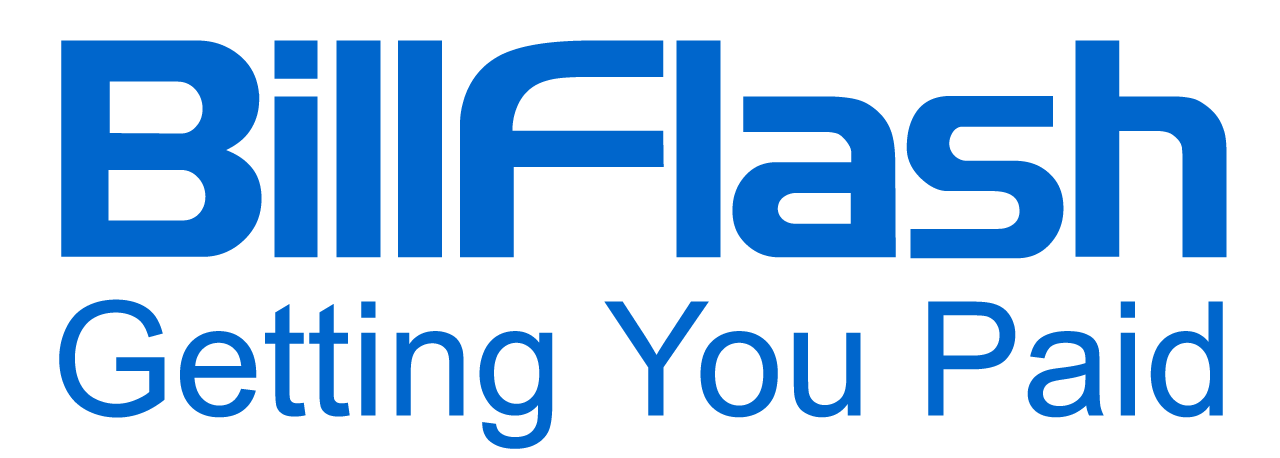Discover the ins and outs of healthcare compliance with this comprehensive guide.
Healthcare compliance is a crucial aspect of the healthcare industry that ensures adherence to laws, regulations, and guidelines. It encompasses various processes and practices aimed at maintaining patient safety, data privacy, and ethical standards. In this comprehensive guide, we will explore the concept of healthcare compliance, its key elements, regulatory bodies involved, challenges in implementation, and the future of compliance in the ever-evolving healthcare landscape.
Understanding the Concept of Healthcare Compliance

Healthcare compliance refers to the adherence of healthcare organizations to legal and regulatory requirements to protect patients, maintain data privacy, and uphold ethical standards. It involves the development and implementation of policies, procedures, and practices that ensure compliance with applicable laws and regulations.
When it comes to healthcare compliance, there are numerous factors to consider. One important aspect is the protection of patient information. In today's digital age, healthcare organizations must be diligent in safeguarding sensitive data. This includes implementing secure systems and protocols to prevent unauthorized access and ensuring that patient information is stored and transmitted securely.
Another crucial element of healthcare compliance is the prevention of fraud, waste, and abuse. With the rising costs of healthcare, it is essential to have measures in place to detect and prevent fraudulent activities. Compliance programs help identify potential red flags and establish protocols for reporting and investigating suspected fraud.
Furthermore, healthcare compliance also plays a significant role in upholding ethical standards. Healthcare providers are entrusted with the well-being of their patients, and compliance programs help ensure that they act in the best interest of those they serve. This includes maintaining confidentiality, respecting patient autonomy, and providing quality care.
Definition and Importance of Healthcare Compliance
Healthcare compliance is the process of aligning healthcare practices with laws, regulations, and guidelines to ensure ethical conduct and patient safety. Compliance programs are essential for preventing fraud, waste, and abuse in the healthcare sector. They promote transparency, accountability, and quality care, thereby safeguarding patients' well-being and trust in healthcare providers.
One of the primary reasons why healthcare compliance is crucial is because it helps protect patients' rights and safety. Compliance programs establish standards and protocols that healthcare organizations must follow to ensure that patients receive appropriate care. This includes guidelines for informed consent, patient privacy, and the prevention of medical errors.
Moreover, healthcare compliance also contributes to the overall efficiency and effectiveness of healthcare delivery. By adhering to regulations and best practices, healthcare organizations can streamline their processes, reduce errors, and improve patient outcomes. Compliance programs often involve regular audits and assessments to identify areas for improvement and ensure that healthcare providers are delivering high-quality care.
Additionally, healthcare compliance is essential for maintaining public trust in the healthcare system. When patients seek medical treatment, they place their trust in healthcare providers to act in their best interest. Compliance programs help ensure that this trust is not misplaced by holding healthcare organizations accountable for their actions and promoting transparency in their operations.
The Role of Healthcare Compliance in Patient Safety
Patient safety is a fundamental concern in healthcare, and compliance plays a crucial role in ensuring it. Healthcare compliance programs establish protocols for preventing medical errors, ensuring accurate documentation, and adhering to infection control measures. By promoting best practices and monitoring healthcare procedures, programs contribute to improved patient outcomes and reduced risks.
One way healthcare compliance enhances patient safety is through the implementation of error reporting systems. These systems allow healthcare providers to report and analyze errors, near misses, and adverse events. By identifying the root causes of these incidents, healthcare organizations can implement corrective actions to prevent similar occurrences in the future.
Compliance programs also focus on accurate documentation, which is vital for patient safety. Proper documentation ensures that healthcare providers have access to complete and up-to-date patient information, enabling them to make informed decisions about diagnosis and treatment. It also facilitates effective communication among healthcare professionals, reducing the risk of errors or miscommunication.
Furthermore, these programs address infection control measures to prevent the spread of healthcare-associated infections. This includes implementing hand hygiene protocols, proper sterilization techniques, and appropriate use of personal protective equipment. By adhering to these measures, healthcare organizations can minimize the risk of infections and protect the well-being of both patients and healthcare providers.
In conclusion, healthcare compliance is a multifaceted concept that encompasses various aspects of legal, ethical, and patient safety considerations. Compliance programs are essential for healthcare organizations to ensure that they operate within the boundaries of the law, uphold ethical standards, and provide safe and quality care to their patients.
Key Elements of a Healthcare Compliance Program

A robust healthcare compliance program encompasses several key elements that work together to maintain ethical practices and regulatory compliance.
Ensuring the integrity and trustworthiness of healthcare organizations is of utmost importance in today's complex and ever-evolving healthcare landscape. With the increasing emphasis on transparency and accountability, healthcare compliance programs have become essential in maintaining ethical practices and regulatory compliance.
Policies and Procedures
Establishing clear policies and procedures is vital for healthcare organizations to ensure consistency in operations and compliance with regulations. These policies outline acceptable behavior, ethical guidelines, and procedures for reporting violations. Regular review and updates to policies help align practices with the changing regulatory landscape.
Healthcare compliance policies serve as a roadmap for employees, providing them with guidelines on how to navigate the intricate web of regulations and ethical dilemmas they may encounter in their day-to-day work. These policies not only set expectations for employees but also promote a culture of compliance throughout the organization.
By having well-defined policies and procedures, healthcare organizations can minimize the risk of non-compliance and mitigate potential legal and financial consequences. These policies act as a safeguard, ensuring that all employees are aware of their responsibilities and obligations in maintaining ethical practices.
Training and Education
Effective training and education programs are essential for promoting awareness among healthcare professionals. Training sessions educate employees about regulatory requirements, potential risks, and the importance of ethical practices. Ongoing education helps employees stay up-to-date with changing standards and best practices.
Training programs provide healthcare professionals with the knowledge and skills necessary to navigate complex regulatory frameworks. These programs cover a wide range of topics, including privacy and security regulations, fraud and abuse prevention, and conflict of interest management.
By investing in comprehensive training and education initiatives, healthcare organizations empower their employees to make informed decisions and act in accordance with regulatory requirements. These programs not only enhance awareness but also foster a culture of continuous learning and improvement.
Communication and Reporting
Open lines of communication and effective reporting mechanisms are crucial for identifying and resolving issues. Healthcare organizations should establish channels for reporting potential violations and encourage whistleblowing. Robust reporting structures enable timely detection, investigation, and resolution of concerns.
Creating a culture of open communication is essential in healthcare compliance. Employees should feel comfortable reporting potential violations without fear of retaliation. By fostering an environment where reporting is encouraged and protected, healthcare organizations can identify issues early on and take appropriate actions to address them.
Furthermore, effective communication channels facilitate the dissemination of compliance-related information throughout the organization. Regular updates and reminders about policies and procedures ensure that employees are well-informed and equipped to uphold ethical practices.
Robust reporting mechanisms, such as anonymous hotlines or online reporting systems, provide a safe and confidential avenue for employees to report potential violations. These mechanisms not only encourage transparency but also enable healthcare organizations to promptly investigate and address concerns.
In conclusion, a healthcare compliance program is a multifaceted approach that encompasses policies and procedures, training and education, as well as communication and reporting. By implementing these key elements, healthcare organizations can uphold ethical practices, maintain regulatory compliance, and ultimately, ensure the delivery of high-quality and trustworthy healthcare services.
Regulatory Bodies
The Role of the Office of Inspector General (OIG)
The Office of Inspector General (OIG) is a regulatory body responsible for promoting integrity and combating fraud, waste, and abuse in federal healthcare programs. It oversees programs and conducts audits, investigations, and enforcement actions to ensure adherence to regulations. Healthcare organizations must collaborate with the OIG and comply with its guidelines to maintain ethical practices.
Health Insurance Portability and Accountability Act (HIPAA)
HIPAA is a federal law that safeguards the privacy and security of individuals' health information. Compliance with HIPAA regulations is essential for healthcare organizations handling protected health information (PHI). This includes implementing physical, technical, and administrative safeguards to protect patient privacy and maintain data security.
Challenges

Overcoming Resistance to Change
Implementing programs often faces resistance from employees who might perceive it as an additional burden. Organizations must address this resistance by creating a culture of compliance, emphasizing the benefits, and involving employees in the development and implementation process. As a result, engaging staff through training, open communication, and recognizing their contributions can help overcome resistance and promote compliance.
Ensuring Continuous Compliance
Healthcare compliance is an ongoing process that requires continuous monitoring, evaluation, and improvement. With evolving regulations and emerging risks, healthcare organizations need to constantly assess their programs' effectiveness and make necessary adjustments. Consequently, regular internal audits, external assessments, and benchmarking against industry standards ensure sustained compliance.
The Future of Healthcare Compliance
Technological Innovations
In the digital era, technological advancements are transforming healthcare practices. For example, automation tools, artificial intelligence, and data analytics facilitate efficient monitoring, risk assessment, and reporting. Innovations like electronic health records, telehealth, and secure messaging platforms streamline processes and enhance patient safety.
Evolving Regulatory Standards
As the healthcare landscape evolves, so do regulatory frameworks. Healthcare organizations must stay abreast of changing laws, regulations, and industry standards to maintain compliance. Proactive engagement with regulatory bodies and industry associations, along with regular training and education, will help organizations navigate the evolving regulatory landscape and adapt their programs accordingly.
In conclusion, healthcare compliance is a critical aspect of the healthcare industry that promotes patient safety, data privacy, and ethical practices. By understanding these concepts, recognizing its key elements, working with regulatory bodies, addressing implementation challenges, and embracing technological advancements, healthcare organizations can uphold the highest standards in patient care and safety.
Going Forward with BillFlash
With BillFlash, practices can go further by optimizing their revenue cycle, efficiently collecting past-due A/R, and providing patients with a convenient and secure payment experience. With a user-friendly interface and industry experts available for all your billing, payments and collections needs, BillFlash is the perfect solution for small practices.

